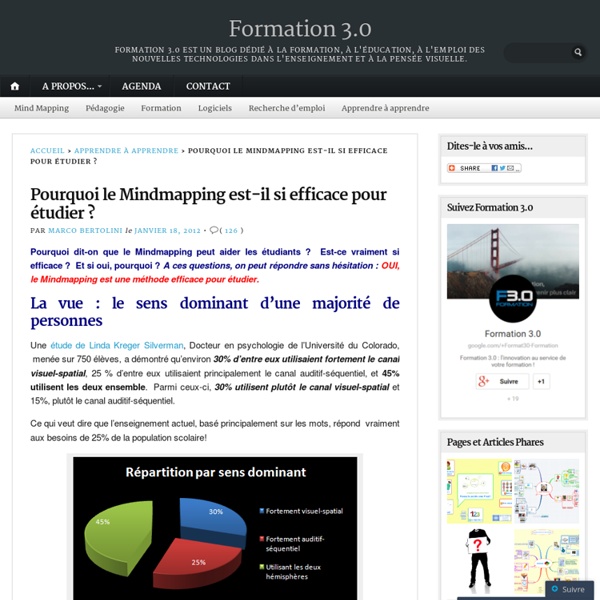



http://format30.com/2012/01/18/pourquoi-le-mindmapping-est-il-si-efficace-pour-etudier/
Related: New Learning • Concept "Carte mentale" • Métacognition • méthodoLearn to Speed Read in Just a Few Hours I’m not one for making big New Year’s Resolutions as I am a continual goal setter and look at life plans and goals on a weekly or at least monthly basis, so I don’t need one day a year to pretend I’m actually going to change the year, I just always do that. However, there is one that I can’t encourage others enough to look more seriously at and that is about reading. I hope I can inspire a few people to put this on their own goal sheets for the year. Thank you everyone for a wonderful 2008, may your 2009 be even better! Background
Curation in the Age of Abundance “A curator is an information chemist. He or she mix atoms together in a way to build an info-molecule. Then adds value to that molecule.” – Scoble One of some buzzwords from SXSWEDU 2012 is “educators as curators”. With lots of Web2.0 curation tools available, what does it mean to be a curator? What’s the difference between an aggregator and a curator ? Carte.html <table width=90% cellpadding=10><tr><td bgcolor=ff4447><span><h1>WARNING:</h1><b>JavaScript is turned OFF. None of the links on this concept map will <br />work until it is reactivated. <p><a href=" If you need help turning JavaScript On, click here.
77 Ways to Learn Faster, Deeper, and Better If someone granted you one wish, what do you imagine you would want out of life that you haven’t gotten yet? For many people, it would be self-improvement and knowledge. Newcounter knowledge is the backbone of society’s progress. Great thinkers such as Leonardo da Vinci, Thomas Edison, Benjamin Franklin, Albert Einstein, and others’ quests for knowledge have led society to many of the marvels we enjoy today. Your quest for knowledge doesn’t have to be as Earth-changing as Einstein’s, but it can be an important part of your life, leading to a new job, better pay, a new hobby, or simply knowledge for knowledge’s sake — whatever is important to you as an end goal.
Scientific Speed Reading: How to Read 300% Faster in 20 Minutes (Photo: Dustin Diaz) How much more could you get done if you completed all of your required reading in 1/3 or 1/5 the time? Increasing reading speed is a process of controlling fine motor movement—period. This post is a condensed overview of principles I taught to undergraduates at Princeton University in 1998 at a seminar called the “PX Project”. The below was written several years ago, so it’s worded like Ivy-Leaguer pompous-ass prose, but the results are substantial. There’s Life Left In Delicious Yet For a long time, the web-based social bookmarking service Delicious was a poster child for the Web 2.0 movement. It was open, collaborative and full of the tags and user-generated content that made VCs instinctively open up their checkbooks at the time. It’s been 10 years, since the service opened to the public – then still running on the del.icio.us domain – and while it’s changed owners a few times since, it’s still up and running and its original concept hasn’t changed all that much.
Data, Information, Knowledge Many bloggers have discussed the difference of “data”, “information”, and “knowledge”. Here is my attempt. (1) To become knowledge, information must be linked into a context. See the red arrow (1) that moves the assertion shown in blue as a dashed line between two little squares into a red one. This is where “managing” mere information can become knowledge management. (2) If a simple assertion is extracted from its context it morphs to information again. Can I Learn to Read Faster and Get Through My Backlog of Books? Advice on how to read faster is all good and well, BUT: 1) Why does everything have to happen FASTER FASTER FASTER and why do you think you need to read MORE MORE MORE? It's not about quantity, but about quality. If you read good books, you're not done by the time you get to the last page. You have to think about it later and make sense of it. If you read books that don't require deep thinking like this, then there's no reason for you to want to read even more of these shallow works.
Muzio’s beautiful iOS app makes it easier than ever to curate & share memories What's next in mobile? Find out at MobileBeat, VentureBeat's 7th annual event on the future of mobile, on July 8-9 in San Francisco. Register now and save $400! Big Thinkers: Judy Willis on the Science of Learning Judy Willis: Hi, I'm Judy Willis and I am a neurologist. I've been a neurologist for 15 years and after the 15 years my patient practice really changed. I started getting so many referrals for kids whose teachers thought they had ADD, obsessive compulsive disorder, staring spells, seizures petit mal epilepsy, and the increase was huge and yet the kids had no greater incidence of it. And I saw the notes were coming from the school so I visited the schools.
9 lessons about the web and business from Pearltrees, the or Pearltrees is a French startup that wants to change the way we organise the web. Describing how it works would lead you to believe that it’s another social bookmarking site, which would do them injustice. Most of the social bookmarks are organized either alphabetically or chronologically, which doesn’t do much good when you try to retrieve stuff later. Also, due to how most social bookmarking sites were designed, they’ve become more like a curated list of the hottest headlines out there right now, and about what Mashable calls “velocity” – the question: how fast is this thing spreading? This idea of velocity is not what Pearltrees is about – on the contrary, it’s a tool that helps you keep an eye on context and history in the endless stream of blogs, tweets and Facebook posts.